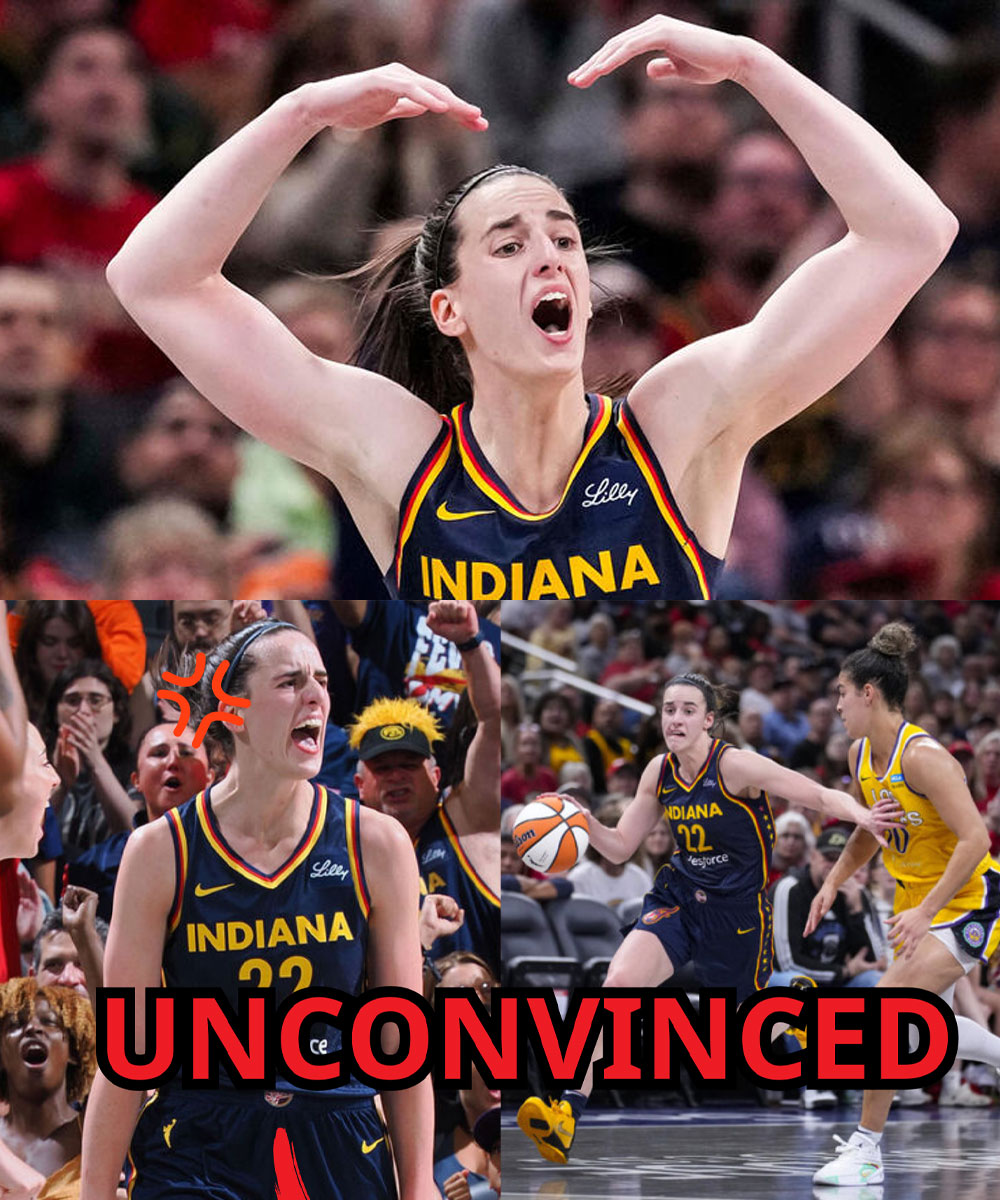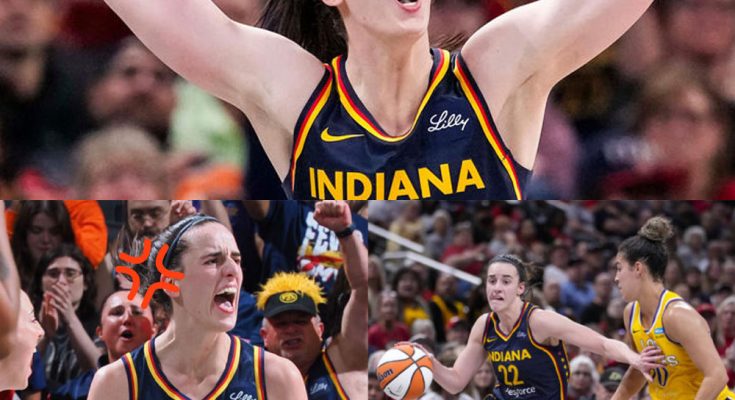The Indiana Fever’s recent game against the Atlanta Dream was supposed to be another showcase for rookie star Caitlin Clark and her young, hungry team.
Instead, it became a prime example of how inconsistent officiating can overshadow the drama and beauty of basketball. The game, which ended 91-90 in favor of Atlanta, left players, coaches, and fans alike frustrated—not just by the loss, but by the way the game was managed from the scorers’ table.

The Officiating Takes Center Stage
From the opening tip, the game’s rhythm was disrupted by frequent whistles, lengthy reviews, and a parade to the free-throw line. Both teams struggled to find their flow, but the Fever seemed particularly affected. Clark, as the team’s point guard and floor general, was asked about the officiating in her postgame press conference. She didn’t bring up the subject herself, but when the question came, she answered with honesty and professionalism.
Clark pointed out that the constant stoppages—especially the lengthy challenges—were detrimental to the flow of the game. “Challenges cannot take that long,” she said. “It ruins the flow of the game. I get it, it’s early in the year, the refs want to make the right call. But we can’t sit there for two and a half, three minutes on an obvious hit out of bounds and still not know the call.”
Her comments weren’t the complaints of a sore loser. They were the measured observations of a player who understands that basketball is a game of rhythm, where momentum can shift in an instant. When that rhythm is broken, it affects everyone on the court.
The Toll on the Fever
The officiating woes were felt most acutely in the first half, where Fever head coach Stephanie White was forced to use both of her available challenges on calls that were, by Clark’s estimation, “point blank obvious.” She won both challenges, but that left the team without recourse in the second half when the stakes were even higher.
Clark explained, “It’s tough when Coach White is put in a position to have to use both her challenges in the first half on calls that were pretty point blank, and then we’re left with none in the second half. Every single possession matters.”
The constant interruptions and questionable calls didn’t just slow the game down—they changed its outcome. Key moments were marred by indecision and error, with the officials sometimes taking minutes to review plays that seemed obvious to everyone watching, both in the arena and at home.
Human Error or Something More?
Basketball fans understand that referees are human. Mistakes happen, and most players and coaches are willing to accept the occasional missed call. But this game felt different. The mistakes weren’t just frequent; they were costly. As Clark and others pointed out, it wasn’t just about the time spent reviewing plays, but the fact that so many of those reviews ended up overturning the original calls. At one point, both coaches had used and won their challenges in the first half—a rare occurrence that speaks to the level of confusion on the floor.
Commentators and analysts watching the game were equally baffled. There was a moment when a clear jump ball situation was suddenly called a foul, sending Atlanta to the free-throw line. Even the broadcasters questioned how a routine tie-up could morph into two free throws for the opposition.
The Impact on the Game’s Outcome
The Fever’s inability to challenge late-game calls proved costly. In the closing moments, star forward Aaliyah Boston was clearly held by a Dream defender—a play that went uncalled and could have changed the outcome. The Dream shot more free throws than the Fever, adding to the sense of injustice.
Clark, ever the professional, refused to blame the entire loss on the officials. “No matter what, if it’s a choppy game, we’ve got to find a way to find our flow a little bit better, especially to start the game and start the second half,” she said. But her frustration was clear. “You can’t just be sitting around and standing around all that time while they wait on something that’s so obvious. Great, you want to get it right. Well, then maybe you’re just not ready yet for prime time.”
A Call for Accountability
This isn’t the first time questions have been raised about WNBA officiating. Months ago, there were calls for a task force to evaluate officials and ensure that only the best were working the league’s biggest games. The events of this Fever-Dream matchup will only add fuel to that fire.
Clark’s father, interviewed after the game, echoed the sentiment: “The officiating has to be better. Has to be more fluid.” It’s a feeling shared by many around the league, especially when there’s a significant discrepancy in calls or when obvious plays are missed.
The Bigger Picture
Basketball is a game of momentum and emotion. Coaches call timeouts to break runs, to “ice” a free throw shooter, or to draw up a crucial play. But when the officials become the ones breaking the flow—over and over—it impacts the entire product. It’s not just about one team or one player; it’s about the integrity of the game.
Clark’s willingness to speak up matters. “Sometimes if you say anything bad about the officials, they fine you,” she noted. But her critique was measured, thoughtful, and, most importantly, justified. She didn’t resort to outbursts or excuses. She called for better, fairer officiating—something every player, coach, and fan should be able to get behind.
Moving Forward
The Fever have plenty to work on. Clark herself admitted the team didn’t play their best basketball. But when the conversation after a game is dominated by officiating, it’s a sign that something needs to change.
For the WNBA, the lesson is clear: the league’s growth and popularity demand a higher standard of officiating. Players like Caitlin Clark—who handle adversity with grace and candor—deserve nothing less.
As Indiana regroups and looks ahead to the next challenge, the hope is that the focus will return to the action on the court, not the confusion on the sidelines. For now, Clark’s words ring out as both a critique and a call to action: “It just can’t happen.”



